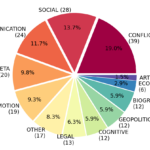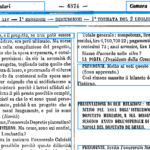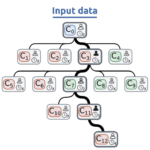Coleen Holloway and Emanuele Sigismondi from University of Bologna (History and Oriental Studies) used the ALCIDE plaform to study the concepts of “people” and “multitude” during their internship in our group at Fondazione Bruno Kessler. This talk will summarise their findings and provide insight into how to use digital technologies to carry out cultural studies.
Abstract:
In his Grammar of the Multitude, Paolo Virno notes how in XVII century the opposition between the two polarities of ‘people’ and ‘multitude’ was central not only in philosophy, but in the political practice and religious disputes of the time. He identifies Hobbes and Spinoza, respectively, as “putative fathers” of those two concepts, and posits that Hobbes’ “win” for a conception of ‘the people’ as a homogeneous unit over a grouping of differing social and political stances to form a political body had risks and rewards for the nation-state. What is at stake here is an entire ontology of social being; its thoughtful appraisal can potentially open a new course for emancipatory politics. We find that Virno’s work in the first chapter of the book provides enough grounding to ask: How important was this linguistic shift for politics? Would conceptions of democracy look different today if Spinoza instead “won”? Alongside political treatises, we analyze records, letters and pamphlets of English and colonial administrators in Massachusetts and of radical religious dissenters on both sides of the Atlantic. Texts available in digital format are processed through the ALCIDE platform. In doing this, we follow Virnos hint in hypothesizing that the struggle took place not only, perhaps not even primarily, on the terrain of philosophical discussion.
Note: The talk will be in English
Work supervision:
Prof. Carla Salvaterra, Università di Bologna, Dip. Storia Cultura Civiltà
Dr. Sara Tonelli, DH-FBK
Location:
Aula piccola, FBK, Via Santa Croce, Trento





